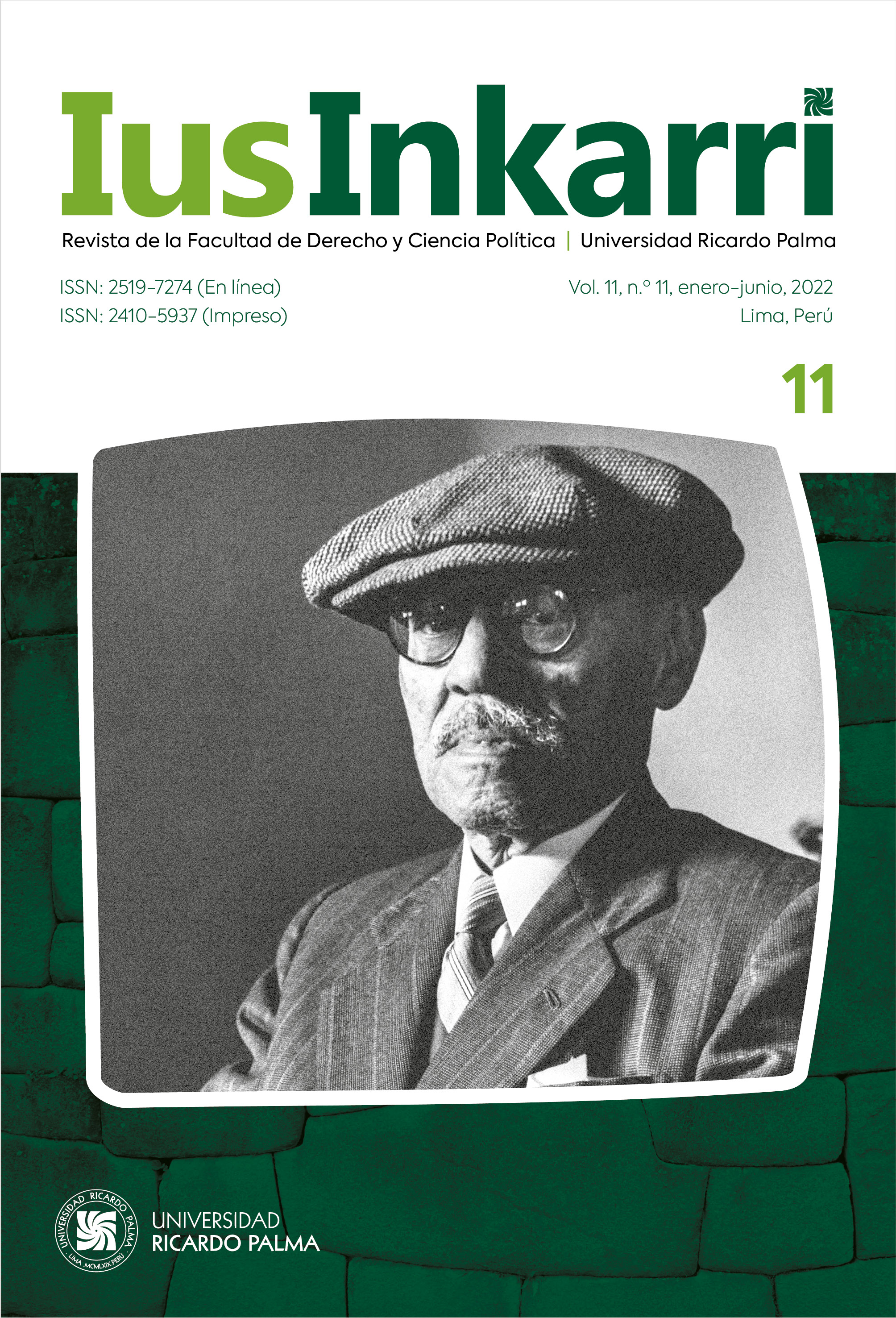The performance of the judge in the short story «El caso de Julio Zimens» by Enrique López Albújar
DOI:
https://doi.org/10.59885/iusinkarri.2022.v11n11.09Keywords:
Enrique López Albújar, Peruvian narrative, judge, law, literatureAbstract
More than a century ago, the Peruvian writer Enrique López Albújar published the book Cuentos andinos (1920), a collection of ten stories generally protagonized by indigenous characters, and which have the Andean world as their narrative space. Literary critics have emphasized the foundational character of this book of stories, since it represents, for the first time, the Andean character called: The Indio. This text does not intend to discuss whether the Indian represented by López Albújar is or is not true, is or is not a criminal; but, on the contrary, our attention is focused on the study of the representation of the figure of the judge in the story «The Case of Julio Zimens». We will describe and explain our thoughts on the judge, the judicial system, and its paradoxes.
Downloads
References
Calvino, I. (1992). Por qué leer a los clásicos. Tusquets.
Escajadillo, T. (2010). López Albújar: ¿narrador o juez? Revista de Crítica Literaria Latinoamericana, (72), 481-488.
López Albújar, E. (2018). Narrativa. Obras completas (t. 1, vol. 1). Fondo Editorial del Poder Judicial del Perú.
López Albújar, E. (2019). Memorias. Obras completas (t. 5). Fondo Editorial del Poder Judicial del Perú.
Nussbaum, M. (1997). Justicia poética. La imaginación literaria y la vida pública. Andrés Bello.
Nussbaum, M. (2014). Emociones políticas. ¿Por qué el amor es importante para la justicia? Paidós.
Downloads
Published
How to Cite
Issue
Section
License
Copyright (c) 2022 Gladys Flores Heredia

This work is licensed under a Creative Commons Attribution 4.0 International License.













